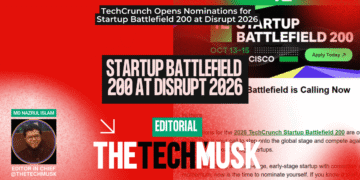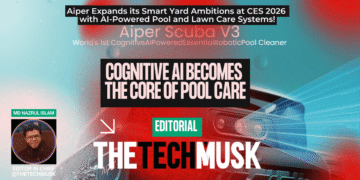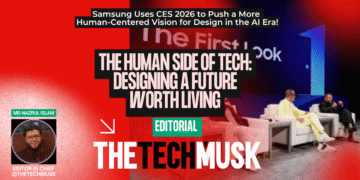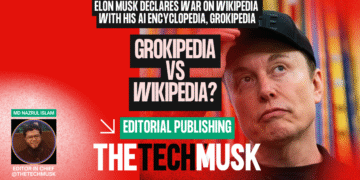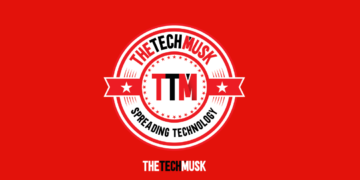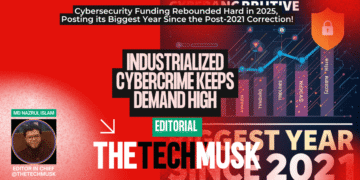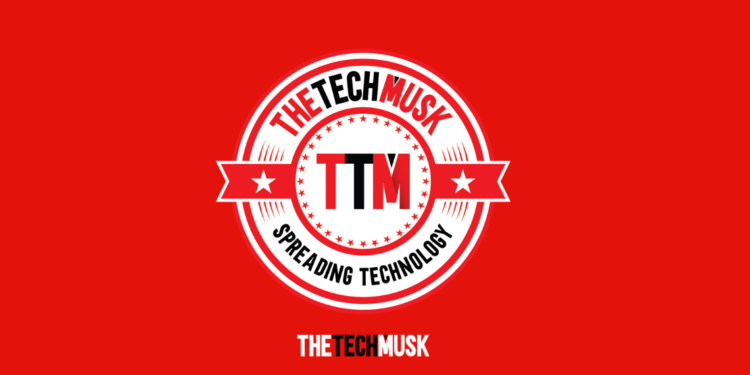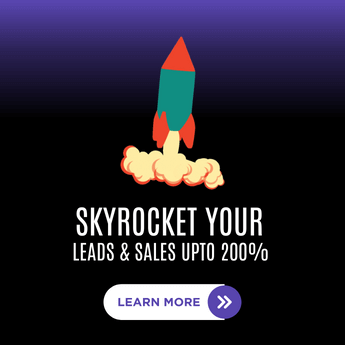Artificial Intelligence (AI) is making waves across various industries, and we’ve asked nine industry leaders to share their experiences. From Project Leads to CEOs, these professionals provide unique insights into the AI impact in their respective fields. From how AI revolutionizes lesson planning in education to crafting highly tailored marketing initiatives, discover the nine ways AI is reshaping industries.
Revolutionizing Lesson Planning in Education
Transforming Customer Support
Driving Insights in Marketing Data Analysis
Influencing Resume Review in Hiring
Shifting to DIY Content Creation
Automating Media Lists Creation in PR
Enhancing Legal Research and Analysis
Integrating in HVAC Marketing and Service
Crafting Highly Tailored Marketing Initiatives
Revolutionizing Lesson Planning in Education
AI has indeed been revolutionary in the education sector. Many educators can attest to the often tedious process of shaping and refining lesson plans. AI has stepped in to lighten that load. Its capacity to analyze vast amounts of data and recognize patterns allows for more tailored lesson plans, and the automation it offers streamlines the entire design process.
The aim is to champion educators by leveraging the skills of a dedicated team to offer top-notch services. Recently, AI has taken a front seat in the quest to enhance what we offer, making the experience for users even more seamless.
Platforms like ChatGPT, and EuHu by Findel, harness the power of AI, aiding educators in the meticulous process of lesson planning. By weaving AI elements into educational materials and lesson outlines, the lesson planning process has been improved. The return on integrating AI is very much worthwhile.
Chris Burgess, Project Lead, EuHu by Findel
Transforming Customer Support
Artificial intelligence has had a profound impact on my industry by revolutionizing customer support and engagement. AI-powered chatbots and virtual assistants have become increasingly sophisticated, allowing businesses to provide instant and personalized assistance to customers around the clock.
This not only enhances the customer experience but also streamlines support operations, reduces response times, and cuts costs. AI-driven data analysis and predictive analytics also play a crucial role in helping businesses make informed decisions and improve their products or services.
Overall, AI has significantly transformed the way companies in my industry interact with customers and manage their operations.
Jay Toy, General Manager, 88stacks
Driving Insights in Marketing Data Analysis
One way I’ve observed artificial intelligence impacting my industry is through automated data analysis and insights generation. AI tools can analyze vast amounts of marketing data quickly and accurately, providing valuable insights into customer behavior, market trends, and campaign performance.
This data-driven approach enables more informed marketing decisions and helps optimize strategies for better results.
Khurram Mir, Founder and Chief Marketing Officer, Kualitatem Inc.
Influencing Resume Review in Hiring
Artificial intelligence software has significantly influenced the early stages of resume review in hiring. Previously, large companies often delegated this work to someone below HR or the hiring manager. However, now that it’s all online, running resumes through software saves time and money.
This change has altered the way recruiters work with candidates. Getting a resume past the AI stage requires a renewed focus on keywords, as that’s how computer programs sort through applicants.
Before applying, it’s recommended that candidates tweak their resume to ensure they’re including terms found in the job posting, and move more subjective verbiage to the cover letter.
Linn Atiyeh, CEO, Bemana
Shifting to DIY Content Creation
AI allows more content marketers to take a DIY approach to content creation. They no longer have to be excellent writers to produce written content. While I believe that AI-generated copy isn’t as compelling as what human writers can produce, the fact remains that fewer companies are relying on freelance writers like myself, which has created a slowdown in my industry.
I do not believe this slowdown to be permanent; rather, I think that once the new-and-shiny factor wears off, companies will recognize the value of human creators more than ever before and be more open to using a mix of humans and AI to produce great copy.
Alli Hill, Founder and Director, Fleurish Freelance
Automating Media Lists Creation in PR
One profound way AI has impacted PR is through the automation of media list creation. Leveraging AI, particularly algorithms like GPT-4, we’re now able to craft tailored media lists and pinpoint media opportunities.
Analyzing sentiment has also become more streamlined. This technological leap frees PR professionals to focus on high-level strategy. However, the irreplaceable human touch in communication remains as crucial as ever.
Neil Hodgson Coyle, Content Marketing Manager, PRLab
Enhancing Legal Research and Analysis
One way a lawyer might see how artificial intelligence (AI) is impacting their industry is through the increasing use of AI-powered legal research tools and document analysis software. These tools can quickly sift through vast amounts of legal documents, case law, and statutes to provide lawyers with relevant precedents, legal opinions, and insights. They can significantly enhance the efficiency of legal research, saving lawyers a considerable amount of time and effort.
Additionally, AI-driven contract analysis tools can review and extract key terms and clauses from contracts, helping lawyers identify potential risks and discrepancies more accurately. While these AI technologies can streamline tasks, lawyers also need to be mindful of potential biases in AI algorithms and the need for human oversight to ensure ethical and legal compliance in their practice.
Aaron Winston, Strategy Director, Express Legal Funding
Integrating in HVAC Marketing and Service
Artificial intelligence continues to make its way into the marketing and customer service areas of the HVAC industry.
Increasingly, pay-per-click marketing, like that with Google, is synchronized between our Google account, phone system, and in-house software. The AI takes this information and analyzes it based on which leads were good, to better direct our ad campaigns. This not only saves us money but also creates more effective marketing.
In terms of customer service, companies can reduce the need for so many live operators to address customer needs. This has both positive and negative aspects. While it’s not desirable to see operators replaced by AI, it seems to be the trend. In our case, we use AI only on our online chat feature and only to initiate the conversation. A live operator takes over as soon as the conversation gets going.
Christopher Olson, General Partner, Southern Bay Realty
Crafting Highly Tailored Marketing Initiatives
In the digital marketing realm, one of the most profound impacts of artificial intelligence has been in the domain of “Predictive Analytics.” AI-driven tools now possess the capability to analyze vast datasets, discerning patterns and trends that might elude human analysts. For instance, these tools can predict which marketing strategies are likely to resonate with specific audience segments, or when a particular demographic is most likely to engage with content.
This predictive power has revolutionized campaign strategies. Instead of broad, one-size-fits-all campaigns, we can now craft highly tailored initiatives, optimizing resources and ensuring maximum ROI. The ability to anticipate market behaviors and preferences, powered by AI, has ushered in a new era of precision and efficiency in our industry.
Jon James, CEO, Ignited Results
Revolutionizing Lesson Planning in Education
Transforming Customer Support
Driving Insights in Marketing Data Analysis
Influencing Resume Review in Hiring
Shifting to DIY Content Creation
Automating Media Lists Creation in PR
Enhancing Legal Research and Analysis
Integrating in HVAC Marketing and Service
Crafting Highly Tailored Marketing Initiatives

